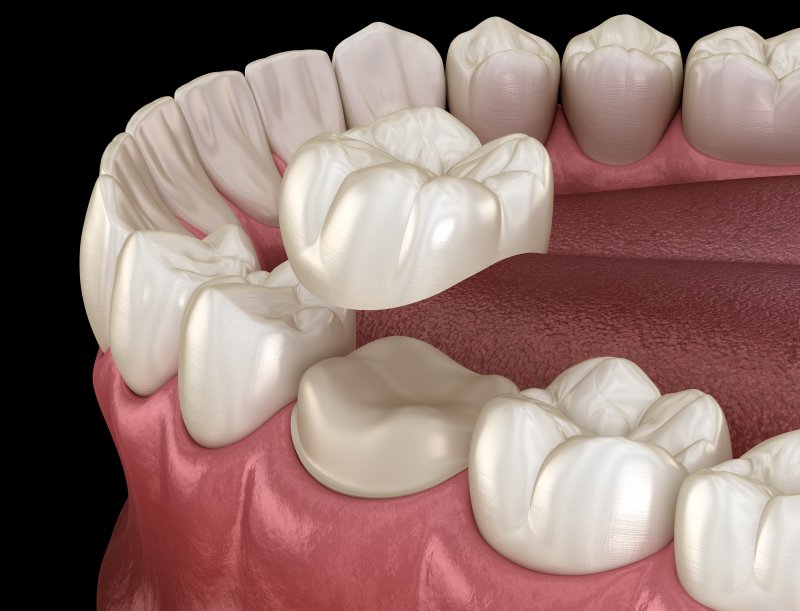
When receiving a dental crown for a recently treated decayed or damaged tooth, you learn about its many benefits, which range from its functionality to its aesthetics. You may also discover how long this restorative solution is meant to last. Although not designed to be a permanent fixture inside your mouth, keep reading to find out the average timeframe for a custom dental crown and what you can do to extend its lifespan for longer-lasting protection.
The Average Lifespan of a Dental Crown
Most dental professionals agree that the average lifespan of a dental crown is around 10 years. However, this number can change depending on how well you take care of your new tooth. Some may only last for five years, while others may remain firmly in place for up to 15 years.
How to Extend the Life of a Crown
How long your dental crown lasts is ultimately up to you. If you commit to taking proper care of it, you may not need to have it replaced for more than a decade, but if you neglect your oral health and hygiene, you may find that you’re visiting your dentist much sooner for help.
If you’d rather avoid investing in a new crown any sooner than it is necessary, here are a few things you can do:
- Seek treatment if you grind and clench your teeth. Bruxism as it is known is an unhealthy habit that you may not realize you practice unless your dentist tells you. Too much pressure placed on your crown can cause it to wear down and break over time. A custom nightguard can be highly effective in reducing teeth grinding and clenching, ultimately protecting your crown so it will last longer.
- Adopt good oral hygiene habits. Brushing your teeth twice each day, flossing at least once before bed, using fluoridated toothpaste, and rinsing with an antimicrobial mouthwash are essential to avoiding additional decay and infection.
- Pay attention to what you eat. Sugar and starch are fine in moderation but should not be the core component of your diet. Incorporating leafy greens, calcium-enriched foods, fruits and vegetables, and lean meats will give your teeth (both real and artificial) and gums the best chance to thrive. Also, eating crunchy or hard foods can put your crown at risk of breakage.
- Give up unhealthy habits. Smoking and using tobacco products, drinking alcohol excessively, eating ice, and trying to open packages with your teeth are all ways to hinder your oral and overall health as well as shorten the lifespan of your dental crown.
- See your dentist for regular checkups and teeth cleanings. Their equipment and techniques for plaque and tartar removal as well as enhanced imaging will ensure that your smile remains decay and disease-free. It will also allow them to check your restoration to ensure it is in good shape and continues to do its job of protecting your tooth.
Dental crowns can last many years as long as you commit to taking care of them. Get the most out of your investment by taking the necessary steps to ensure the health and longevity of your new smile.
About the Author
Dr. Monica Boehmer believes all individuals should be able to enjoy healthy, fully restored, and beautiful smiles. When a person requires a dental crown to protect a vulnerable tooth, she and her team can deliver a beautiful and fully functional restoration. But their commitment to improving smiles doesn’t stop there, as she’ll also provide tips to ensure the lifespan of the new crown. Contact us at (505) 349-0266 to learn more about how you can take better care of your custom restoration.
